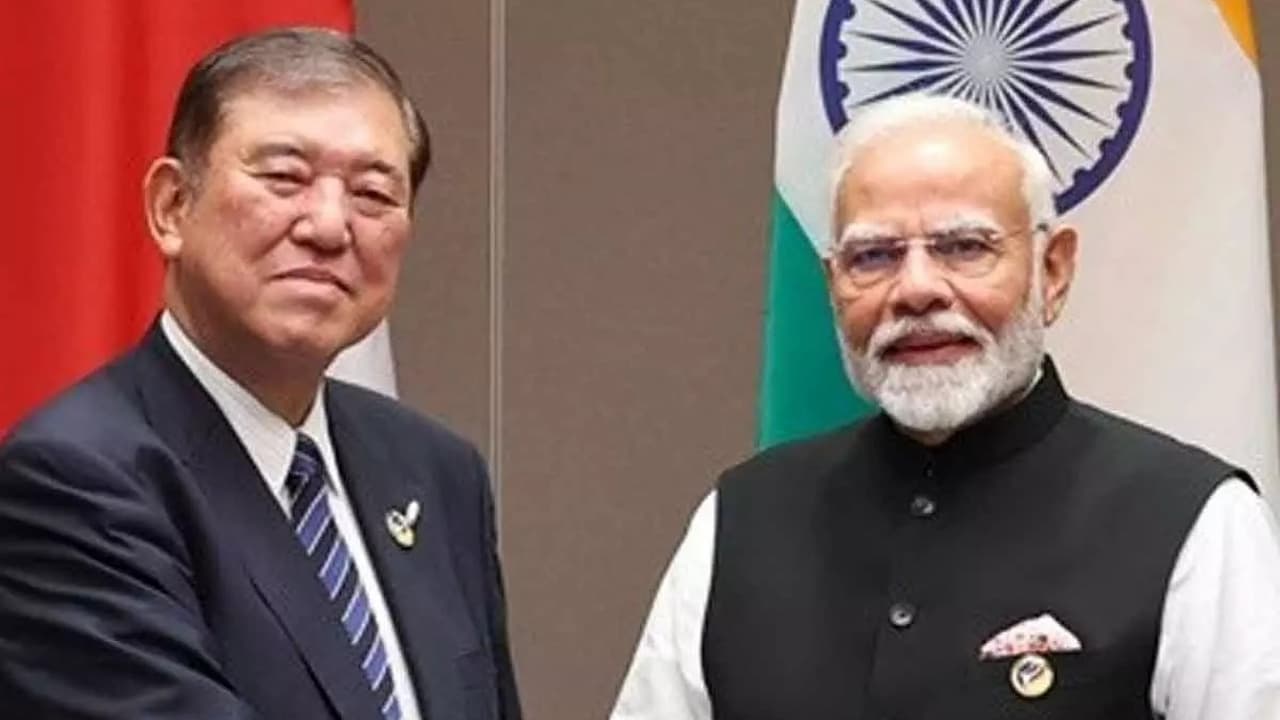Japanese Prime Minister Shigeru Ishiba said India’s vast market holds immense potential, and tapping into its vibrancy could boost Japan’s economic growth

Prime Minister Narendra Modi and Japan’s Prime Minister Shigeru Ishiba shake hands during a joint press conference in Tokyo, Japan August 29
NEW DELHI/TOKYO: Japan has pledged 10 trillion yen ($68 billion) in private investments in India over the next decade, as Prime Ministers Narendra Modi and Shigeru Ishiba unveiled a 10-year plan to strengthen cooperation in critical areas such as technology, digitalisation, rare earths, and defence.
At their annual summit in Tokyo, the two leaders launched an Economic Security Initiative to enhance supply chain resilience in sectors like semiconductors, telecom, pharmaceuticals, and emerging technologies. They also adopted a Joint Declaration on Security Cooperation to address regional security challenges.
While not directly naming the U.S., both leaders stressed the need to safeguard the international order amid uncertainty caused by global tariff and trade policies. Modi said the India–Japan partnership is built on mutual trust and shared values, calling it vital not just for the two nations but also for global peace and stability.
Japan’s new investment pledge doubles its earlier target of 5 trillion yen (2022–26), achieved ahead of schedule. Ishiba confirmed Tokyo’s support for projects in space, next-gen mobility, and the Mumbai–Ahmedabad high-speed rail corridor, which will feature Japanese Shinkansen technology.
The leaders also agreed to expand cooperation in AI, digital technology, ports, aviation, and shipbuilding. In space collaboration, ISRO and JAXA will work together on the Chandrayaan-5 mission.
Human capital exchange was another focus, with Modi highlighting plans for 500,000 people-to-people exchanges in five years, including 50,000 skilled Indian workers contributing to Japan’s economy. Ishiba, noting that fewer than 2,000 Indian students are in Japan, called for more Indian talent to boost Japanese growth and local communities.
On defence, the two sides vowed to deepen collaboration to ensure a free and open Indo-Pacific, voicing concern over China’s assertiveness in the South and East China Seas. They also agreed to accelerate cooperation in defence innovation and maritime security.
Both governments tasked their foreign ministries to fast-track policy-level exchanges under the Economic Security Initiative, focusing on high-tech trade, export controls, and strategic projects.













